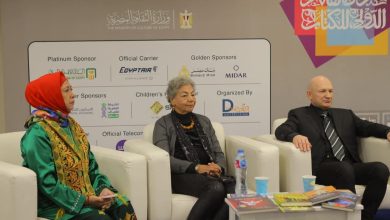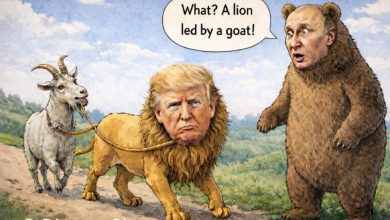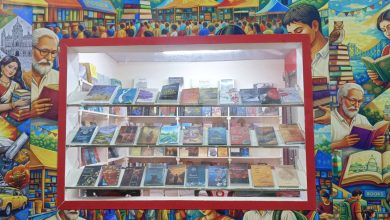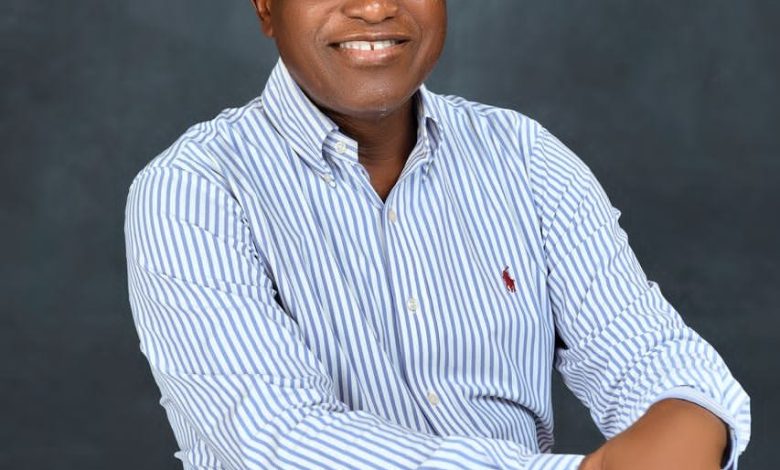
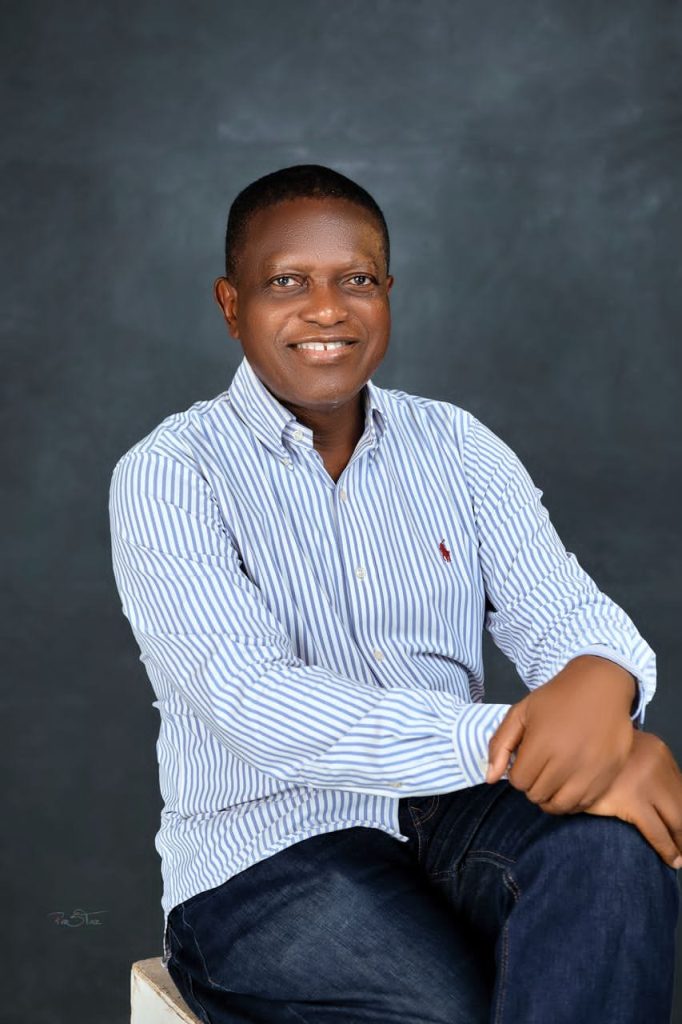 Wale Okediran is 70! 70, ke?! It is hard to believe.
Wale Okediran is 70! 70, ke?! It is hard to believe.
Many of the people who know him, Im certain, would not believe it. Because he does not look it. Like a few people around, Wale has the annoying habit of looking different from any of the many personalities he embodies.
Usually, identity and appearance are quasi- synonymous. By long-established and well-known social and professional protocol, looks have become more or less unfailing markers of identity. But not with Wale Okediran. His physiognomy is at best an enigmatic code of oxymorons./ puzzling litotes.
Start from physical appearance and answer me: how can a man who they tell us has reached the biblical Winter age carry a face that gleams with such boyish radiance, and on a frame so robust that even teenage boys in the gym look at with envy?
But that is not all. Wale is a writer; indeed, one of our most endowed. So you expect, when you meet him, to encounter someone of the tribe of these eccentrics who seem to have never heard of tailors or hairdressers, or of the invention of comb, soap or detergent. But you would be terribly disappointed. The Wale we know is most often meticulously turned out, neat and proper, almost like a catholic priest.
Which brings me to perhaps the most conspicuous of these contradictions. Okediran is a politician. He joined a political party, stood for elections and went on the hustings. He won elections and, for a term at least before he was voted out, served as his peoples representative in the federal house of representatives.
Now, politicians, in our country, never need an introduction when you meet them. Loud and ostentatious, they thrust their presence on you noisily with self-promoting, self-advertising drivel. Openly as we heard from EL Rufai ??? the other daythey boast without compunction about their penchant for treachery, vileness, and edacious greed. So where does the Wale we know rank in this company? How do you assess a politician who is self-effacing, shy, and polite?
That was his character anyway when I first knew him. Soft-spoken, mild and gentle, he had come out of the medical school in Ibadan and now ran a modest hospital at the suburb of Sango in the town.
Sango, at that time, was what you would call a medium slum area of the city, one of the oldest plank markets on the rail and motor way to Ilorin, and about ten kilometres to the campus of the university of Ibadan. You can guess from its name and location that It must have harboured a high number of settlers from the north, comprising mainly the Hausa families engaged in manual jobs. But by now the population was far more diverse, though of the same class of petty merchants and artisans together with the usual agbegilodo crowd of iso pako.
Young and idealistic, I was immediately impressed. This was what I called leaning on love, making a profession on compassion and sacrifice. I saw a kindred spirit in this young man who had chosen to locate his hospital in this particular area, among the poor, rather than in the more affluent neighbourhoods of the city like his peers from the medical school. For me, it was a bold and uncommon ideological statement that needed encouragement.
To get to the place [in those days before Ibadan got modernised], you would have to park your car, walk along some dingy street, jump over a couple of gutters and a few refuse dumps. If you were lucky, you would catch some young girls playing suwe or reciting some school songs while having their hair braided. Such nostalgic moments!
Then, when you arrived, you found a surprisingly clean environment, with well-swept rooms, and smiling nurses in smart uniforms. Perhaps not surprisingly, most of the ailing patients would also be in an upbeat mood, in a surrounding that induced you with hope and confidence, unlike the generally morbid atmosphere of the big government hospitals .
Hence it was no surprise that Wale became my personal physician too in the end, and later on, that of some members of my family, though I have lost now the details of this arrangement.
In any case, I was quite happy to take my mother there after her first stroke, which she survived, thanks largely to the geniality of the doctor and his nurses. [Years later, unfortunately, she did not survive another attack and, alone with her body for a few moments on the hospital bed, I cried my first adult tears in helpless despair.]
But Wale and I had more to tie us together than the affairs of health. Like me, I quickly found out, he was deeply interested in literature and especially, in creating it. He read avidly, wrote prolifically, anything from short story to travelogue to newspaper column to childrens stories. But in those days he wrote somewhat apologetically, with unease, haunted by a feeling of guilt and inadequacy on the account that he had not studied literature like most of us. He felt therefore like an intruder, because unfamiliar with the rules and regulations of critical theory, like a furtive guest who had to tread with utmost caution in the house of the Muse.
It took a while to persuade him that these were baseless fears. Those of us who were literature students spoke vociferously on the subject by habit, it was true; we made magisterial, unctuous pronunciamientos indeed, but that had nothing to do with the ultimate quality of literary output, or of the profundity of the artistic imagination. Indeed, on the contrary, his study of medicine was a providential boon, because it opened him up to areas of human experience that literary students were ignorant of.
Indeed, being a physician offered ample advantages over being a teacher or lecturer, because it opened the door to areas of experience that enrich the writers insight. Wale himself finally came to agree. Some of the episodes in his books would have been impossible to write or even imagine but for the testimonies of his clients. And his works even began to win important prizes (e.g. Rainbow Are for Lovers, The Boys At the Border, etc)
We were, to repeat, kindred spirits. I enticed him to join ANA, the still fledgling association of writers which Achebe had invited some of us to Nsukka to form. Soon, state chapters began to sprout, including the one in Ibadan. And it was at of these gatherings that Wale met and got close to Chief Bola Ige, the famous radical lawyer and maverick politician who was also a writer and had accepted to be an ANA patron.
Iges influence was to be especially crucial in Wales subsequent career. First, seeing Ige, a classicist scholar but professional lawyer and leading politician also talking authoritatively on literature helped considerably to buoy up his own self-assurance as a writer even though professionally a doctor.
However, the more significant influence that Ige had on Wale was in his attitude to politics. Noticing Wales genuine concern for the poor and the less privileged, Ige soon got the young man converted to his gospel that the main problem with our country, and for the continued dominance of scoundrels and mediocres in our public life, was the refusal of good men, of intellectuals, to dirty their handsthat is, to participate as insiders in political life. Wale thus agreed to be recruited into Iges party and to stand for elections, which he won splendidly, and became a member of the countrys house of representatives.
Unfortunately, and perhaps not surprisingly, he did not make it into a second term in office. {Some of the reasons for this are in Tenants of the House, his popular fictionalised account of the experience).
At the same time, his activities in ANA had increased to the extent that he was elected to the associations presidency in 2006. It seems now that, one of the things he learnt from this experienceta least that must have affected him deeply,, was the realisation of the poor and precarious situation of writers generally in Nigeria, the lamentable lack of institutional support whatsoever for creative work. Therefore, a year after he left the national assembly, he took the bold and unprecedented decision to embark on the establishment of a Writers residency programme! To be completely and wholly funded by himself! Located in his private residence in the little town of Iseyin, the Ebedi Writers Resort is the first of such undertakings, and has by today hosted over three hundred writers from over ten different African countriesa feat yet to be equalled by any other writer or body on the continent! Just by leaning on love
But let us fast forward to the year 2018, a year that has become like a landmark in the history of literary associations on the continent. That year, as if by a planned coincidence, ANA and PAWA, the two largest of such organizations, became embroiled in a crisis of leadership succession, each of which fell on my lap, so to speak, to resolve.
The ANA case seemed at first the easier one to resolve. The problem was that, by the beginning of the year, in a situation that had no precedent and had never been foreseen, the association found itself without an executive to run its business. At the annual convention the previous year, where customarily, a new executive should have been elected to replace the outgoing one, the contest had been so fierce and bitter, and members had broken into such warring factions, that the whole exercise had had to be shifted to an extraordinary emergency meeting to be held later.
Now, which appropriate organ was to convene such a meeting, and where? Above all, who was to fund it? As chairman of ANAs Advisory Committee, and although not so constitutionally empowered, I decided to put together a crisis committee comprising mainly of ANAs past presidentswith people like Olu Obafemi, May Okoye, Wale Okediran, and the now late Jerry Agada. Happily, at last, this committee succeeded at last in restoring peace to ANA, and got a legitimate executive in place. This was the Camillus Okah-led executive that has since led the association to its current memorable achievements.
The problem of PAWA however, which rose simultaneously, was of a different moment. PAWAor, the Pan-African Writers Association in fullwas a baby of the OAU (now AU), formed at one of the rare, inspired moments of the continental Organization at a meeting in Accra in 1989. The aim was to “create a cultural institution that would serve as an umbrella body for writers associations across the African continent and the diaspora.
At that meeting, at which almost all the writers bodies on the continent were present, Accra was chosen to be the bodys headquarters, and prof Atukwei Okai, then president of GAW (the Ghanaian Writers Association), became the executive secretary., while four others, including ANA, became regional vice-presidents of the PAWA Executive.
Sadly, howeveras it has always been with other continental initiativesthe African governments would subsequently not meet up with their promises, especially financial, for the sustenance of PAWA.
Only Ghana took action to ensure PAWAs survival. The Ghanaian government provided us a secretariat, plus a small but steady annual budget to run it and pay the staff. Above all, Ghana gave PAWA a diplomatic status in Accra, such that over the years PAWA came to be seen as an almost exclusively Ghanaian affair. Indeed, Prof Okai as Secretary-General relished the position so much that he would not henceforth step down voluntarily from it , his argument being that by PAWA constitution, it was the general assembly of all the members, which voted in the executive, that had the power to change it. Which meant that, in practical terms, none of us in the executive could leave or be replaced until another general assembly was organized. But how were to organize this without the consent or the financial support of the AU itself?
But without warning, in July 2018, death took Okai from us and the organization fell into a temporary paralysis. As the VP closest to Accra, the burden of resolving the crisis fell on my shoulders. Who would run the affairs of PAWA now?
Our late Secretary General had run the affairs at PAWA very close to his heart, handling the organization almost like a family heirloom. In appreciation, and to our great delight, Okai was accorded a grand state funeral at Osu, at which I was allowed to lay the wreath.
But, retuning from the funeral, the question faced us, even more urgently nowwho would succeed Okai? Who, among our membership possessed the same gravitas or drive, the same fierce persuasiveness and passionate intensity, or the political prestige that Okai used for so long to win us the sympathy of Ghanaian legislators? What, besides, of also reviving enthusiasm for PAWA within the rest of the AU?
I had put together a committee comprising some GAW officers and important names like Kofi Anyidoho to deliberate on this crucial issue of succession. But we were stuck; none of the candidates that came up was adequate.
Then, quite fortuitously, Wale Okediran showed up one morning at Roman Ridge, on a condolence visit. As he accompanied us that day on the rest of the obligatory funeral rites, the idea gradually built up in me. Here was an all-round writer who had been president of ANA, putatively the largest body of writers on the continent. After that he had gone and established the first and only (at the time) residency program for writers, which he fully funded alone, and which brought together every year at least ten writers from various countries. A patron and philanthropist even in spite of his limited resources, he had also travelled extensively and knew many of the writers in their homes.
Of course, being a Nigerian might look like a liability, since Ghanaians would naturally prefer to keep their hold on the position. But, on the other hand, it could also be an advantage, for others complained already about Okais 20 year old monopoly of the post, some even inferring that his long tenure was the reason /responsible /for the loss of interest in PAWA by other countries. In any case, my bet remaines on Wale, that he would have the advantage whenever it came to lobbying Ghanaian legislators, given that he himself was once one of them.
Finally, Wale had worked with Okai a number of times, and was close to his family. This fact, I thought, might also help ease the trauma of his loss for his wife and daughters.
It didnt take too long, I must say, to persuade the committee that Wale was our candidate. Nor did it take him long either to accept our offer. In two or three months, Wale was in office.
The rest, as they say, is history. Wale has surpassed our expectations. Even with the yet-unresolved financial problems with the AU, and the inevitable occasional spats with our host government, he has managed not only to keep PAWA alive, but also imbue it with new life. He has introduced new programs–such as the monthly newsletter, the writer of the week initiative, numerous interviews, etcand made our presence felt at conferences and congresses. I can testify how he has not hesitated to use his own personal resources and links to promote PAWA
Well, Wale, I thank you profoundly for not letting us down. And I addplease, soldier on, my dear compatriot! Age, as you have seen, is never barrier to achievement when one is willing to make sacrifices. And ironically, it is those who give that are still asked to keep giving. It is not wasted, however. And Okinba Launko put it well in his poem, when he counselled us: Learn to lean on love; lean long / And see love in rapture lean back
It will be well. And all manner of thing will be well.
Many splendid returns, Wale!
FEMI OSOFISAN.
Ibadan, April 2025.

